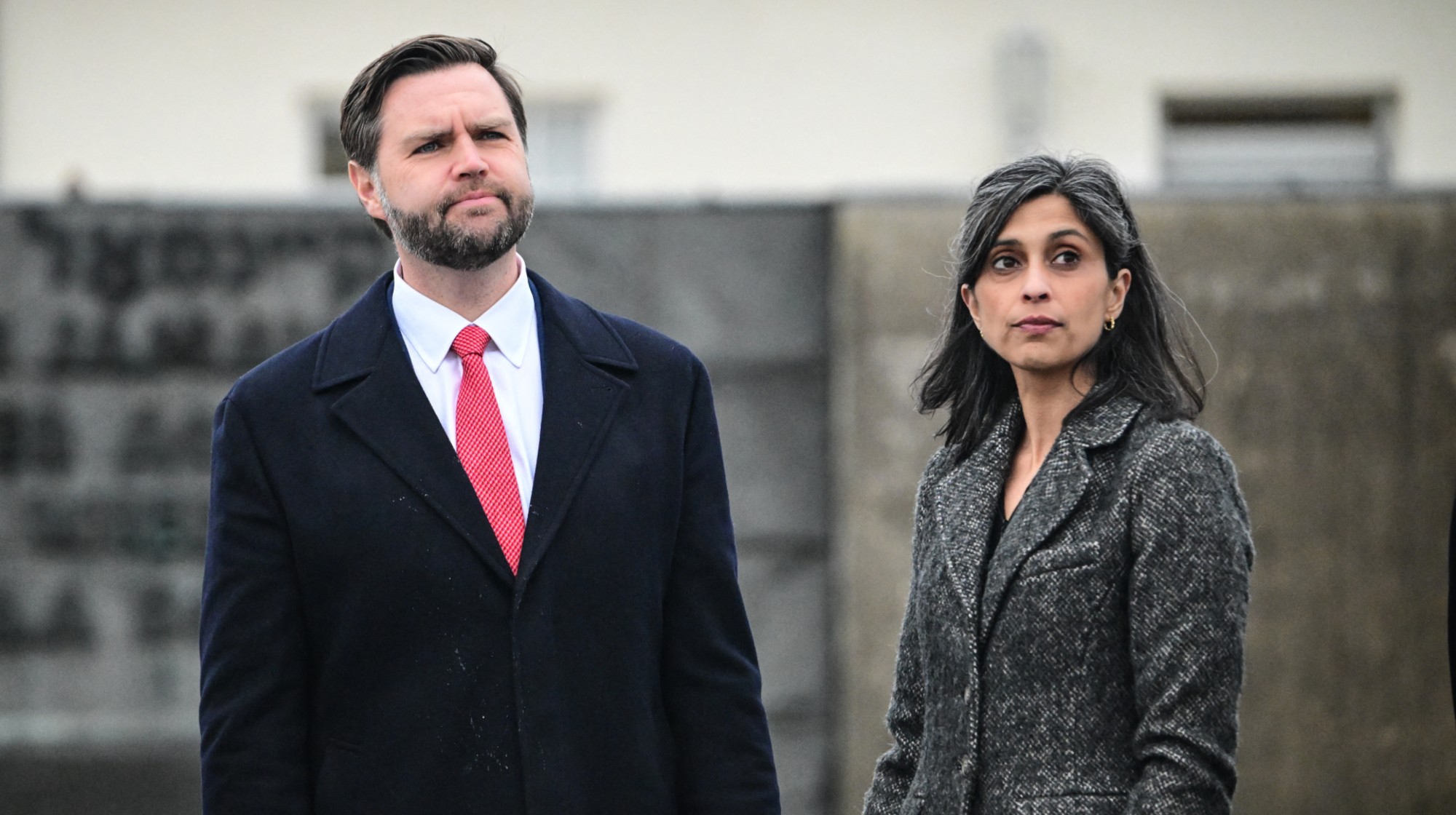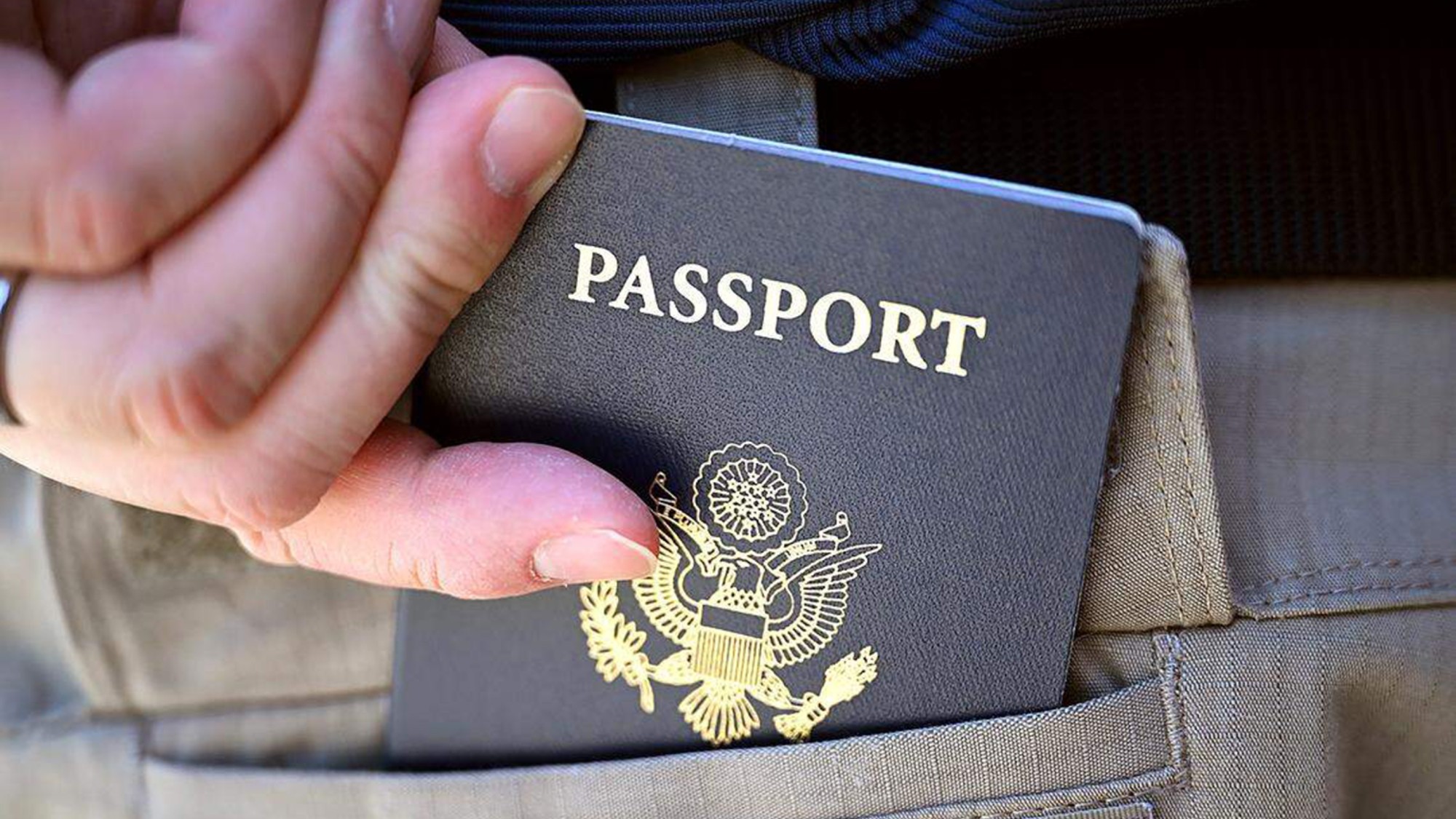JD Vance wades into choppy religious waters about wife Usha
By emphasizing his hope that the second lady convert to Christianity, the vice president is inviting controversy from across the religious spectrum


A free daily email with the biggest news stories of the day – and the best features from TheWeek.com
You are now subscribed
Your newsletter sign-up was successful
As perhaps the most publicly religious member of the second Trump administration, Vice President JD Vance has long been an emissary between this White House and the right-wing Christian communities that form a core pillar of the MAGA tent. But Vance’s recent comments about his wife Usha’s faith and upbringing in an Indian Hindu home have drawn intense criticism from multiple religious communities, even as the vice president himself doubles down on hopes that the second lady might someday fully embrace his Christianity.
Vance’s statements about his family’s faith have taken on a layer of potential significance amid a concerted effort by some within the Trump administration to endorse the virtues of Christian Nationalism.
What did Vance say?
Appearing at a Turning Point USA event at the University of Mississippi last week, Vance was asked a question about “raising three children in an interfaith marriage” with his wife, Usha, and why conservatives have framed Christianity as a “prerequisite for being considered a patriotic American,” said The Washington Post. “Do I hope eventually that she is somehow moved by the same thing that I was moved by in church?” Vance said. “Yeah, I honestly do wish that because I believe in the Christian Gospel, and I hope eventually my wife comes to see it the same way.”
The Week
Escape your echo chamber. Get the facts behind the news, plus analysis from multiple perspectives.

Sign up for The Week's Free Newsletters
From our morning news briefing to a weekly Good News Newsletter, get the best of The Week delivered directly to your inbox.
From our morning news briefing to a weekly Good News Newsletter, get the best of The Week delivered directly to your inbox.

Several days later, Vance expanded on his comments on X in reply to an allegation that he’d thrown his wife “under the bus.” The Second Lady “is not a Christian and has no plans to convert,” Vance said. Regardless of if she does convert, Vance said, “I will continue to love and support her and talk to her about faith and life and everything else, because she’s my wife.”
What is he being criticized for?
Vance’s comments were “basically saying that my wife, this aspect of her is just not enough,” said Hindu American Foundation Executive Director Suhag Shukla to The New York Times. Were Vance simply an “ordinary” pastor, “then whatever,” but as vice president, Vance’s comments have “added kind of fuel” to a lot of fears and “uncertainty in the community,” Shukla said. At times, Vance has “postured himself as a kind of theologian in chief,” said the Post, using his own interpretation of Christianity to “justify the Trump administration’s policies through a religious lens.”
The public framing offered by the vice president about his wife’s relationship with Christianity “should give every American — especially those in interfaith families — pause,” said Religion News Service. Vance’s comments are not only a “private conviction” being “amplified through the power of public office” but are a “public reminder that only one faith is really American” for the millions of non-Christians in the country. Converting to Catholicism, as the vice president did in adulthood, has been “transformative for Vance. That is his truth,” RNS said. But for those in interfaith families, “transformation looks different.”
Put aside the “sheer callousness” of the vice president’s comments, and consider the “implications of Vance’s position for the very hope of a secular society,” said The Indian Express. Rather than this being a case of an “overbearing husband publicly humiliating his wife,” Vance is speaking as “VP of an administration increasingly dominated by a version of so-called ‘Christian Nationalism,’ which has effectively excommunicated so many Americans.”
A free daily email with the biggest news stories of the day – and the best features from TheWeek.com
What is the broader context?
The furor over Vance’s comments comes during a “palpable uptick in Christian nationalism vis-a-vis Hindus,” said the Times of India. At a separate Turning Point event recently, Ohio gubernatorial candidate Vivek Ramaswamy was asked “how he would represent the state which is majority Christian when he is a self-professed Hindu,” prompting the onetime Trump administration figure to stress that he is “not running to be pastor of Ohio.”
Along with conservative Hindus, conservative Jews who “threw in with Trump and the GOP” are now “belatedly realizing” what some have warned, said Zeteo CEO and former MSNBC host Mehdi Hasan on X: “The Christian nationalists of the MAGA GOP are not their friends.” Hasan’s comments come as the conservative world grapples with a growing antisemitism scandal prompted in part by an interview between broadcaster Tucker Carlson and avowed Nazi Nick Fuentes.
Rafi Schwartz has worked as a politics writer at The Week since 2022, where he covers elections, Congress and the White House. He was previously a contributing writer with Mic focusing largely on politics, a senior writer with Splinter News, a staff writer for Fusion's news lab, and the managing editor of Heeb Magazine, a Jewish life and culture publication. Rafi's work has appeared in Rolling Stone, GOOD and The Forward, among others.
-
 Political cartoons for February 15
Political cartoons for February 15Cartoons Sunday's political cartoons include political ventriloquism, Europe in the middle, and more
-
 The broken water companies failing England and Wales
The broken water companies failing England and WalesExplainer With rising bills, deteriorating river health and a lack of investment, regulators face an uphill battle to stabilise the industry
-
 A thrilling foodie city in northern Japan
A thrilling foodie city in northern JapanThe Week Recommends The food scene here is ‘unspoilt’ and ‘fun’
-
 How ‘Manchesterism’ could change the UK
How ‘Manchesterism’ could change the UKThe Explainer The idea involves shifting a centralized government to more local powers
-
 ‘Dark woke’: what it means and how it might help Democrats
‘Dark woke’: what it means and how it might help DemocratsThe Explainer Some Democrats are embracing crasser rhetoric, respectability be damned
-
 San Francisco tackles affordability problems with free child care
San Francisco tackles affordability problems with free child careThe Explainer The free child care will be offered to thousands of families in the city
-
 The Mint’s 250th anniversary coins face a whitewashing controversy
The Mint’s 250th anniversary coins face a whitewashing controversyThe Explainer The designs omitted several notable moments for civil rights and women’s rights
-
 Vance’s ‘next move will reveal whether the conservative movement can move past Trump’
Vance’s ‘next move will reveal whether the conservative movement can move past Trump’Instant Opinion Opinion, comment and editorials of the day
-
 US citizens are carrying passports amid ICE fears
US citizens are carrying passports amid ICE fearsThe Explainer ‘You do what you have to do to avoid problems,’ one person told The Guardian
-
 Which side is JD Vance taking for MAGA’s infighting?
Which side is JD Vance taking for MAGA’s infighting?Today’s Big Question GOP insiders are battling over antisemitism with an eye on 2028
-
 The MAGA civil war takes center stage at the Turning Point USA conference
The MAGA civil war takes center stage at the Turning Point USA conferenceIN THE SPOTLIGHT ‘Americafest 2025’ was a who’s who of right-wing heavyweights eager to settle scores and lay claim to the future of MAGA
